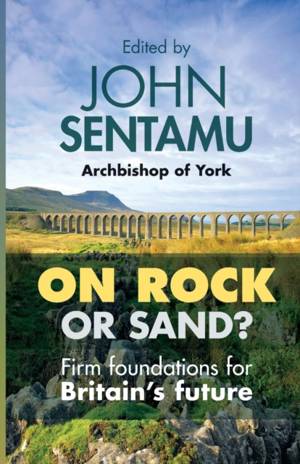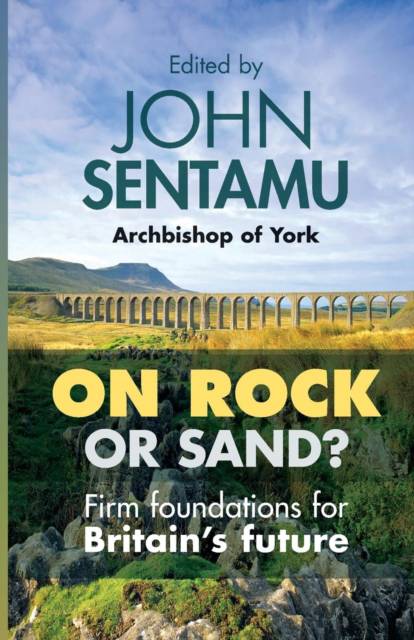
Bedankt voor het vertrouwen het afgelopen jaar! Om jou te bedanken bieden we GRATIS verzending (in België) aan op alles gedurende de hele maand januari.
- Afhalen na 1 uur in een winkel met voorraad
- In januari gratis thuislevering in België
- Ruim aanbod met 7 miljoen producten
Bedankt voor het vertrouwen het afgelopen jaar! Om jou te bedanken bieden we GRATIS verzending (in België) aan op alles gedurende de hele maand januari.
- Afhalen na 1 uur in een winkel met voorraad
- In januari gratis thuislevering in België
- Ruim aanbod met 7 miljoen producten
Zoeken
€ 19,45
+ 38 punten
Omschrijving
On Rock or Sand, edited by John Sentamu, seeks to place the Church actively at the heart of the debate about the kind of nation we want to be. In Britain today expectations of ever-rising prosperity are less and less realistic for the vast majority. Many struggle to make ends meet as the division between the rich and the not-rich becomes ever wider. In this context, The Archbishop of York's editorial brings together expert economic, political, religious and social thinkers; including Lord Adonis, Sir Philip Mawer, Oliver O'Donovan, Andrew Sentance, Julia Unwin and Archbishop Justin Welby. Together they address the fundamental questions about how to maintain some form of social solidarity and those traditional British, 'Christian' values of a just, sustainable and compassionate Britain. With Britain on the brink of a period of change as great as that endured in the 1930s, the continued cohesion of British society is at risk with varied and sometimes conflicting interest groups working toward their own visions of a modern Britain. On Rock or Sand faces up to crucial questions about the moral principles that have underpinned the way Britain is led, driven and governed. It asks if the accepted powers of influence are fit for purpose in the rapidly changing cultural, political and economic world of the mid twenty-first century. This is no cloistered view just for churched men and women, but for people of all, any or no religious background. All who are concerned about the values that influence the nations attitudes, decisions and actions and have a passion to build a sustainable society in which all may participate will find a new understanding through this timely work.
Specificaties
Betrokkenen
- Auteur(s):
- Uitgeverij:
Inhoud
- Aantal bladzijden:
- 336
- Taal:
- Engels
Eigenschappen
- Productcode (EAN):
- 9780281071746
- Verschijningsdatum:
- 15/01/2015
- Uitvoering:
- Paperback
- Formaat:
- Trade paperback (VS)
- Afmetingen:
- 129 mm x 198 mm
- Gewicht:
- 272 g

Alleen bij Standaard Boekhandel
+ 38 punten op je klantenkaart van Standaard Boekhandel
Beoordelingen
We publiceren alleen reviews die voldoen aan de voorwaarden voor reviews. Bekijk onze voorwaarden voor reviews.









